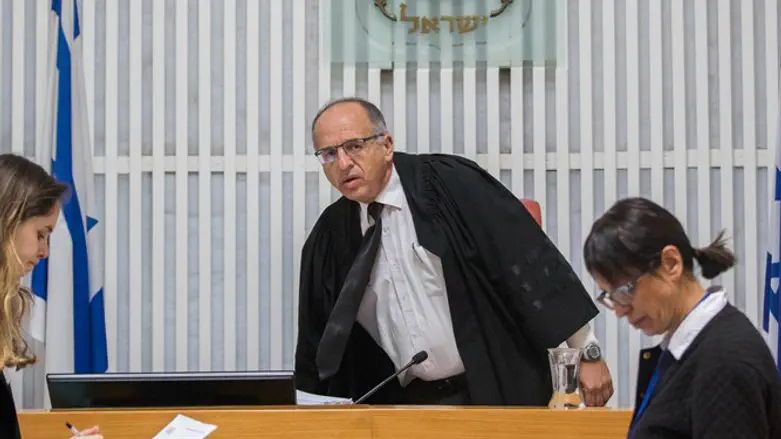
Supreme Court Justices Noam Sohlberg, Yosef Elron, and George Karra unanimously rejected the petition filed by attorney Shachar Ben Meir, the left-wing Ir Amim Association, and 20 residents of Arnona neighborhood who tried to delay the transfer of the US Embassy to Jerusalem on May 14.
The petitioners asked the Supreme Court to determine that the order waiving the usual rezoning approval and construction permits for the work in turning the US Consulate in Jerusalem into the American embassy is illegal.
In practice, the order relates to two issues: the construction of a defensive wall around the new embassy compound, and the paving of a road for an escape route.
In his ruling, Justice Sohlberg noted, "I accept the Petitioners' position that the use of an authority under section 266 (b) should be reserved for exceptional situations only, and that the Minister of Finance must be meticulous and ensure that all the conditions set out in the section are fulfilled before signing the exemption order. Our case falls within the framework of those exceptional situations, and that the conditions established by the legislature have been fulfilled."
Justice Sohlberg further is not authorized to determine a matter of "national importance," and therefore there is no reason to doubt Finance Minister's decision on the subject. "With regard to the definition of a political event as an event of national importance, the position of this court from time immemorial is that such political matters are subject to the authority of the government and are not a matter for judicial review."
"There is no need for great expertise to see that the transfer of the US Embassy to Jerusalem is of great diplomatic and political importance for the State of Israel, so there is no justification to consider the Minister of Finance's decision that the event should be viewed as an enterprise of national importance."
In his conclusion, Solberg wrote, "As the state has pointed out, the planned uses are of a temporary nature, and their deviation from the existing plan is not significant." Between these two considerations - the degree of urgency and importance on the one hand, "In our case, not only have I been persuaded that the exemption order is consistent with the requirements of the law, but that the harm inherent in this order is not of dramatic scope."